Despite the recent budgetary changes to VAT, growth and positivity were the messages that came through strongly at Agri-Tourism Conference 2018.
Sinead Hennessy, food development officer with Fáilte Ireland, told the audience in Ballinasloe that our overseas tourism business has grown by 42% since 2012. And the trend is set to continue.
She said tourists want an “authentic” experience, they want to live like a local. Agri tourism has four clear strengths that match the needs of these tourists: a great reputation for hospitality; standout green credentials; close-to-source ingredients; and high-quality natural ingredients.
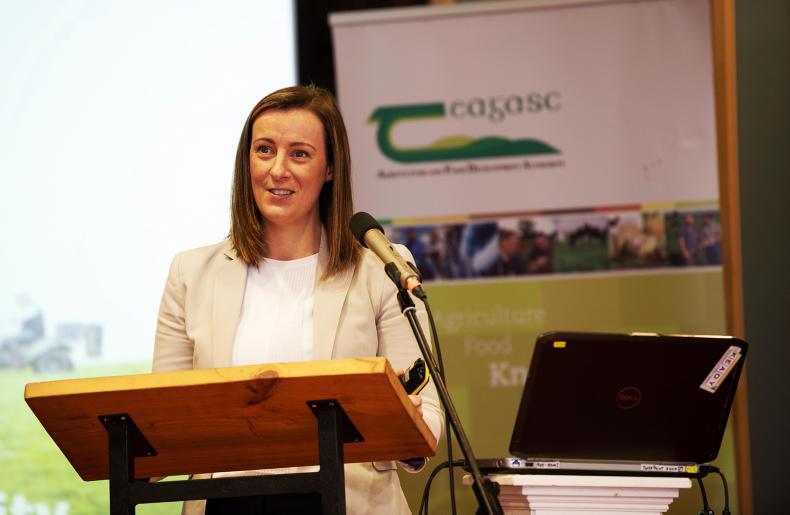
Sinead Hennessy, food development officer with Failte Ireland.
And there’s no doubt, she said, that food is a vital part of the offering: “Our research shows that 50% of global travellers say food and drink is more important now than it was five years ago. A further 64% of consumers are interested in where their food comes from. To confirm this, a massive 93% of visitors to Ireland took part in a food or drink experience – outside of eating regular meals.”
While agri tourism is recognised as a driver of tourism and rural sustainability, there is no dedicated agri tourism strategy. In response, Sinead said the sector is well catered for across Fáilte Ireland’s niche marketing strategy. However, she was open to hearing about any collaborative projects the sector might generate.
Agri tourism can help farm viability
Barry Caslin of Teagasc left the audience in no doubt as to what agri tourism can deliver for rural Ireland: “For a relatively low capital cost, agri tourism can bring money and ‘life’ to rural areas. It can help small farms that are suffering declining viability.
“Farms could be assessed as to their potential to offer new leisure and holiday opportunities to a growing number of city people who want outdoor, active tourism in the countryside.”
He listed over a dozen examples of projects already successfully operating that other farmers could take inspiration from. These included: conversion of old farm buildings into tourist accommodation, allotments, rural therapy centres, glamping, camping, a river adventure park quad bike and 4x4 off-road track.
Getting any business started takes considerable skill, and common mistakes include not investing enough in research or taking the time to examine budgets. Other issues that Teagasc can offer advice on include shopping around for finance, scrutinising terms and conditions, and planning realistic cashflows.
Closing the conference, Professor Gerry Boyle of Teagasc said that substantial numbers of farms need to generate supplementary income. He said agri tourism is part of the solution. The Options and Options Plus programmes offered by Teagasc allow farmers access the resources they have on their farms: “It’s an important service that allows that conversation. Without it there’s no change.”
Professor Boyle said he expected the Bia Innovation campus, which will be based in Athenry, to transform food entrepreneurship in the west. He expected construction of the campus to begin next year and for it to be up and running by the summer of 2020.
Words to the wise
Well-known Co Clare entrepreneur Padraig Giblin of Derg Island Adventure Centre told the conference that farm diversification starts at the farm gate.
“Farmers often don’t realise the potential of their farms. I would suggest there should be a feasibility study of farms that’s carried out by experienced business people. The un-tapped potential could be eye-opening. I know access to funds is an issue, but surely there would be EU funding to help make these farms sustainable.”
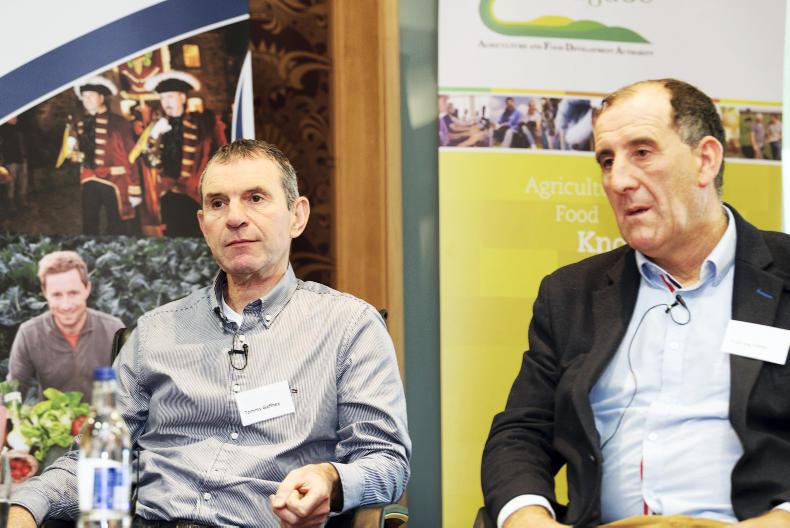
Tommy Gaffney and Padraig Giblin at Agri-tourism Conference 2018.
Niall Moore runs Clonanny Farm shop near Naul in Co Dublin. His advice to farmers thinking of diversifying was to “think outside the box”.
“There’s more money to be made on farms than people think. I keep an eye on what’s happening with farm shops and restaurants in the UK.”
His comments were echoed by Bernadine Mulhall of Coolanowle Country House in Co Carlow: “The potential is there. If you get the next generation involved, give them their head. They will see opportunities their parents haven’t dreamt of. If you like the business and have the energy for it, the sky is the limit.”
The conference was organised by Teagasc, Fáilte Ireland and Galway County Council.
Types of tourists and what they want from a holiday in Ireland
Culturally curious: Want to live with an Irish family in their home. Want to be Irish for a day. Seeking a connection with a real way of life. Also want the convenience of high-speed broadband. Guided farm walks and tastings. Make your own. Catch and cook. Farm to fork.Great escapers: These tourists want to stay off the beaten track. Self-guided walks and trails. Local food packs and family picnics. They want family enriching experiences. Something as simple as collecting eggs.Social energisers: Bucket list experiences that they can tell family and colleagues about. Experiences such as milking a cow, making cheese or butter. A shared dining experience. Quirky accommodation. They are looking for non-formal experiences. Quotable quotes
“The four Ps behind artisan food are product, place, person and passion. If you have these, you are on your way.”
– Eddie O’Neill Teagasc.
“There’s no such thing as a bad idea. But you need to be very stubborn to make a start-up work.”
– Gabriel Flaherty, Aran Goat Cheese.
“Tourists were passing our gate, eating the food we produced. We needed to take them one step back and you really need to think that step out.”
– Aonghus Giggins, Farm Tours Ireland.
“Every farmer involved in tourism should have a poly tunnel to grow fruit and vegetables. Produce should be produced on-farm. You need to be not just green, but deep green.”
– Hans Wieland, Neantóg.
“Farmers need support in interpreting the big Failte Ireland figures and translating them for their own business.”
– Martina Earley, Leader.
“Is anyone making money? Well they are not doing it to be popular.”
– Eddie O’Neill, Teagasc.
Best bit of advice
At one stage Ryanair was charging up to €80 to bring a fishing rod into the country. The charges for fishing gear were putting off angling tourists from coming here, so Padraig Giblin of Derg Island Adventure Centre offered to mind wellies, wet gear and the all-important fishing rods until his customer’s next visit. “I stored all the gear in my mother’s attic before building dedicated lockers. The fishermen kept coming back.”
Despite the recent budgetary changes to VAT, growth and positivity were the messages that came through strongly at Agri-Tourism Conference 2018.
Sinead Hennessy, food development officer with Fáilte Ireland, told the audience in Ballinasloe that our overseas tourism business has grown by 42% since 2012. And the trend is set to continue.
She said tourists want an “authentic” experience, they want to live like a local. Agri tourism has four clear strengths that match the needs of these tourists: a great reputation for hospitality; standout green credentials; close-to-source ingredients; and high-quality natural ingredients.

Sinead Hennessy, food development officer with Failte Ireland.
And there’s no doubt, she said, that food is a vital part of the offering: “Our research shows that 50% of global travellers say food and drink is more important now than it was five years ago. A further 64% of consumers are interested in where their food comes from. To confirm this, a massive 93% of visitors to Ireland took part in a food or drink experience – outside of eating regular meals.”
While agri tourism is recognised as a driver of tourism and rural sustainability, there is no dedicated agri tourism strategy. In response, Sinead said the sector is well catered for across Fáilte Ireland’s niche marketing strategy. However, she was open to hearing about any collaborative projects the sector might generate.
Agri tourism can help farm viability
Barry Caslin of Teagasc left the audience in no doubt as to what agri tourism can deliver for rural Ireland: “For a relatively low capital cost, agri tourism can bring money and ‘life’ to rural areas. It can help small farms that are suffering declining viability.
“Farms could be assessed as to their potential to offer new leisure and holiday opportunities to a growing number of city people who want outdoor, active tourism in the countryside.”
He listed over a dozen examples of projects already successfully operating that other farmers could take inspiration from. These included: conversion of old farm buildings into tourist accommodation, allotments, rural therapy centres, glamping, camping, a river adventure park quad bike and 4x4 off-road track.
Getting any business started takes considerable skill, and common mistakes include not investing enough in research or taking the time to examine budgets. Other issues that Teagasc can offer advice on include shopping around for finance, scrutinising terms and conditions, and planning realistic cashflows.
Closing the conference, Professor Gerry Boyle of Teagasc said that substantial numbers of farms need to generate supplementary income. He said agri tourism is part of the solution. The Options and Options Plus programmes offered by Teagasc allow farmers access the resources they have on their farms: “It’s an important service that allows that conversation. Without it there’s no change.”
Professor Boyle said he expected the Bia Innovation campus, which will be based in Athenry, to transform food entrepreneurship in the west. He expected construction of the campus to begin next year and for it to be up and running by the summer of 2020.
Words to the wise
Well-known Co Clare entrepreneur Padraig Giblin of Derg Island Adventure Centre told the conference that farm diversification starts at the farm gate.
“Farmers often don’t realise the potential of their farms. I would suggest there should be a feasibility study of farms that’s carried out by experienced business people. The un-tapped potential could be eye-opening. I know access to funds is an issue, but surely there would be EU funding to help make these farms sustainable.”

Tommy Gaffney and Padraig Giblin at Agri-tourism Conference 2018.
Niall Moore runs Clonanny Farm shop near Naul in Co Dublin. His advice to farmers thinking of diversifying was to “think outside the box”.
“There’s more money to be made on farms than people think. I keep an eye on what’s happening with farm shops and restaurants in the UK.”
His comments were echoed by Bernadine Mulhall of Coolanowle Country House in Co Carlow: “The potential is there. If you get the next generation involved, give them their head. They will see opportunities their parents haven’t dreamt of. If you like the business and have the energy for it, the sky is the limit.”
The conference was organised by Teagasc, Fáilte Ireland and Galway County Council.
Types of tourists and what they want from a holiday in Ireland
Culturally curious: Want to live with an Irish family in their home. Want to be Irish for a day. Seeking a connection with a real way of life. Also want the convenience of high-speed broadband. Guided farm walks and tastings. Make your own. Catch and cook. Farm to fork.Great escapers: These tourists want to stay off the beaten track. Self-guided walks and trails. Local food packs and family picnics. They want family enriching experiences. Something as simple as collecting eggs.Social energisers: Bucket list experiences that they can tell family and colleagues about. Experiences such as milking a cow, making cheese or butter. A shared dining experience. Quirky accommodation. They are looking for non-formal experiences. Quotable quotes
“The four Ps behind artisan food are product, place, person and passion. If you have these, you are on your way.”
– Eddie O’Neill Teagasc.
“There’s no such thing as a bad idea. But you need to be very stubborn to make a start-up work.”
– Gabriel Flaherty, Aran Goat Cheese.
“Tourists were passing our gate, eating the food we produced. We needed to take them one step back and you really need to think that step out.”
– Aonghus Giggins, Farm Tours Ireland.
“Every farmer involved in tourism should have a poly tunnel to grow fruit and vegetables. Produce should be produced on-farm. You need to be not just green, but deep green.”
– Hans Wieland, Neantóg.
“Farmers need support in interpreting the big Failte Ireland figures and translating them for their own business.”
– Martina Earley, Leader.
“Is anyone making money? Well they are not doing it to be popular.”
– Eddie O’Neill, Teagasc.
Best bit of advice
At one stage Ryanair was charging up to €80 to bring a fishing rod into the country. The charges for fishing gear were putting off angling tourists from coming here, so Padraig Giblin of Derg Island Adventure Centre offered to mind wellies, wet gear and the all-important fishing rods until his customer’s next visit. “I stored all the gear in my mother’s attic before building dedicated lockers. The fishermen kept coming back.”





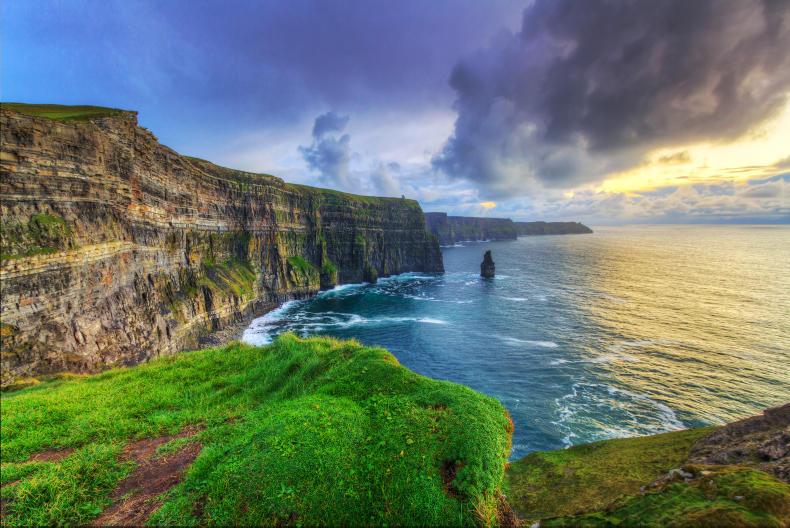
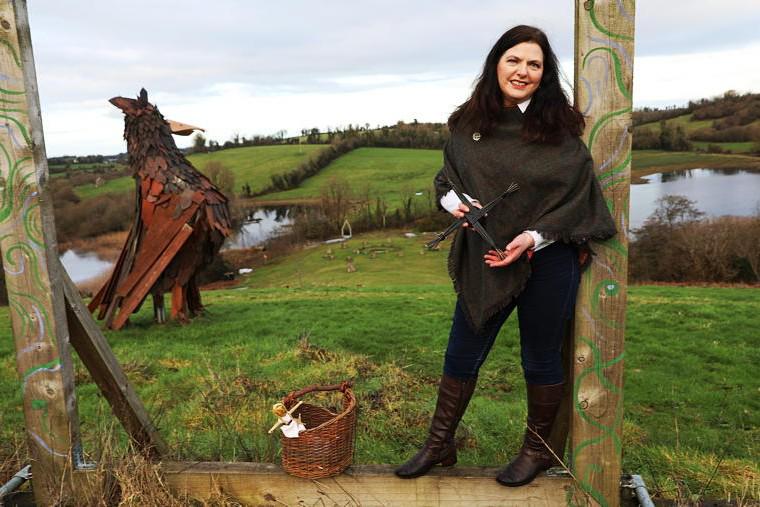

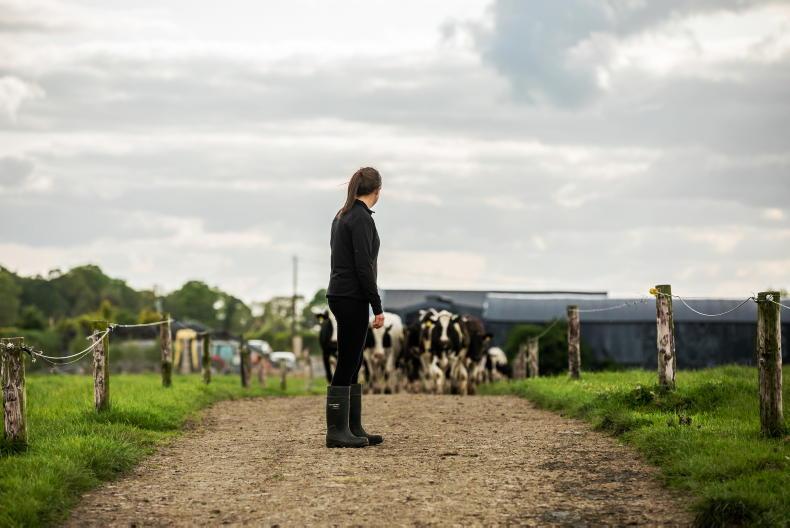
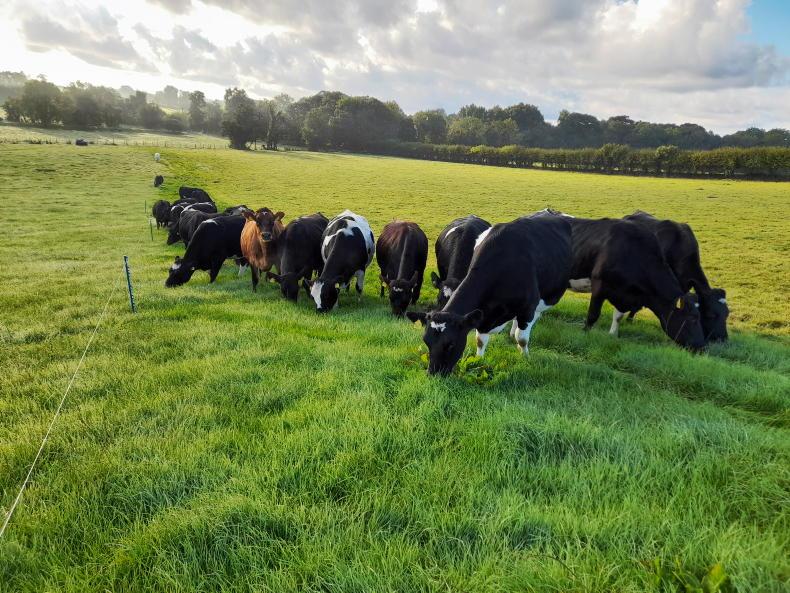
SHARING OPTIONS